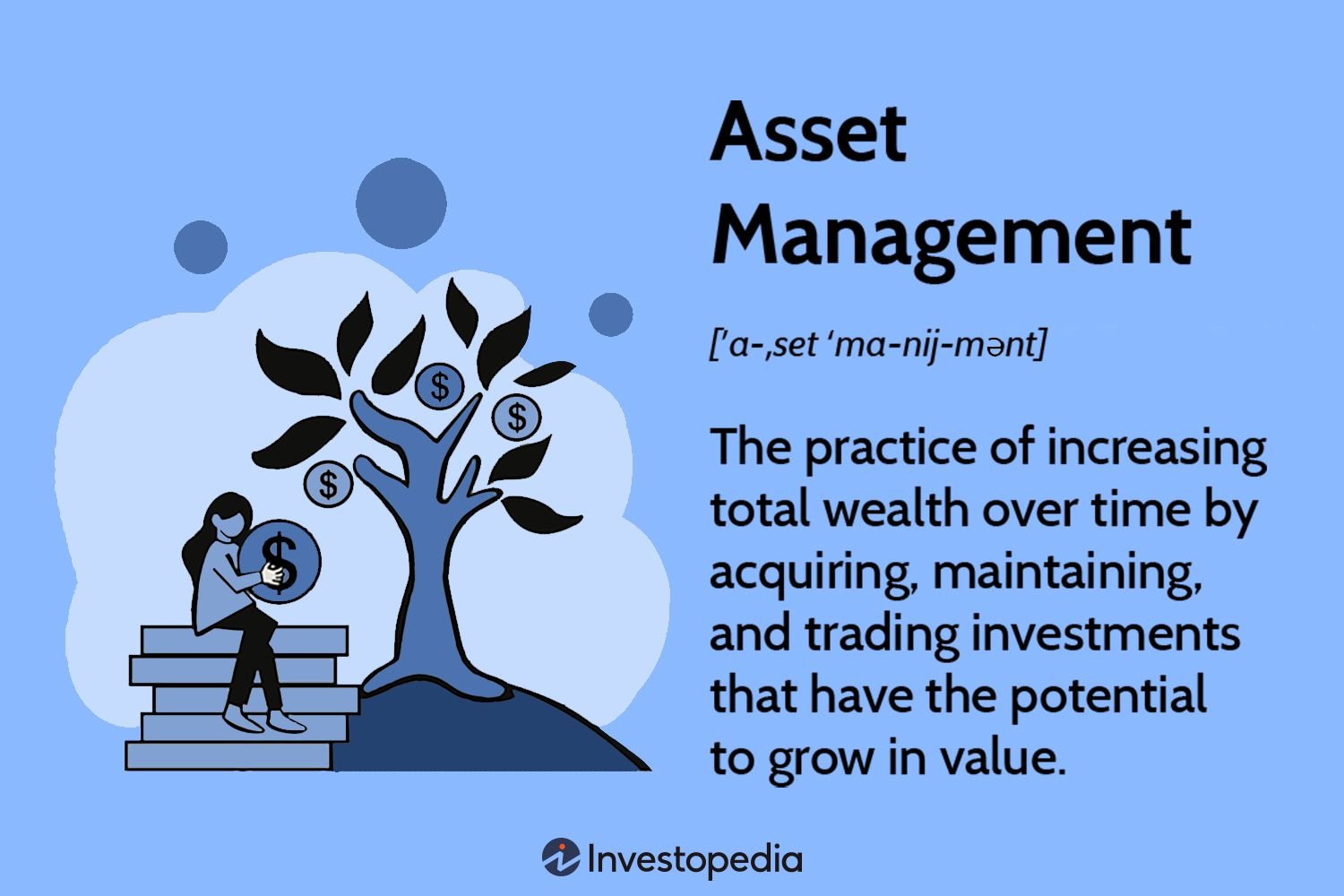An asset management company is the guiding force that helps individuals and organizations navigate the complex world of investments. Wondering what exactly is an asset management company? Well, it’s a specialized firm that pools money from various investors and utilizes it to build diversified portfolios consisting of different asset classes such as stocks, bonds, and real estate. These companies employ skilled professionals who analyze market trends, assess risks, and make sound investment decisions on behalf of their clients. If you’re eager to understand how asset management companies work and how they can benefit you, you’ve come to the right place. Let’s dive in!
What is an Asset Management Company?
An asset management company plays a crucial role in the world of finance and investments. It serves as a professional entity that specializes in managing and overseeing a variety of assets on behalf of individuals, organizations, or institutions. Asset management companies are entrusted with the responsibility of maximizing the value of their clients’ investments while minimizing risks.
The Role of an Asset Management Company
Asset management companies act as intermediaries between investors and their investments. They provide a range of services aimed at effectively managing and growing clients’ portfolios. Here are some key roles and responsibilities typically performed by asset management companies:
- Investment Advisory: Asset management companies offer expert advice and guidance on investment strategies based on their extensive market research and analysis. They help clients make informed investment decisions by considering factors such as risk tolerance, financial goals, and market trends.
- Portfolio Management: Managing investment portfolios is a crucial function of asset management companies. They design customized investment portfolios tailored to clients’ specific needs and objectives. The company’s portfolio managers actively monitor and rebalance the allocation of assets to ensure optimal performance.
- Asset Allocation: Determining the appropriate allocation of assets is vital for achieving clients’ investment goals. Asset management companies utilize their expertise to allocate investments across different asset classes, such as equities, bonds, real estate, and commodities, based on risk tolerance, time horizon, and market conditions.
- Risk Assessment and Management: Asset management companies assess and manage the risks associated with investment portfolios. They conduct thorough risk analyses and implement risk mitigation strategies to protect clients’ investments.
- Research and Analysis: Asset management companies perform in-depth research and analysis to identify potential investment opportunities. They analyze various market factors, economic indicators, and industry trends to make informed investment decisions.
- Performance Reporting: Regular performance reporting is a crucial aspect of asset management. Companies provide clients with detailed reports that showcase the performance of their investments. These reports include information on portfolio returns, asset allocation, and comparative benchmarks.
Types of Asset Management Companies
Asset management companies can specialize in various areas and cater to different types of clients. Here are some common types of asset management companies:
1. Mutual Fund Companies
Mutual fund companies are one of the most well-known types of asset management companies. They pool investments from multiple investors and manage them collectively in a diversified portfolio of stocks, bonds, or other securities. Mutual fund companies offer various fund options, each with its own investment objective and strategy.
2. Pension Fund Managers
Pension fund managers handle the investment activities of pension funds, which are retirement plans sponsored by employers or institutions. Their primary objective is to generate returns that ensure the financial well-being of pension plan beneficiaries in the future. Pension funds typically have long-term investment horizons and focus on capital preservation and growth.
3. Wealth Management Firms
Wealth management firms cater to high-net-worth individuals and families. They provide comprehensive financial planning services, including investment management, tax planning, estate planning, and risk management. Wealth management firms aim to preserve and grow their clients’ wealth while addressing their unique financial objectives and needs.
4. Exchange-Traded Fund (ETF) Providers
ETF providers manage and operate exchange-traded funds, which are investment funds traded on stock exchanges. ETFs typically track a specific index or asset class and aim to replicate its performance. ETF providers ensure the proper functioning and management of the fund, including portfolio rebalancing and dividend distributions.
5. Institutional Asset Managers
Institutional asset managers specialize in managing assets for institutional investors such as insurance companies, corporations, foundations, and government entities. They handle large investment portfolios and often offer specialized investment strategies tailored to meet the specific needs and regulatory requirements of institutional clients.
The Benefits of Hiring an Asset Management Company
Partnering with an asset management company can offer numerous advantages for individuals and organizations alike. Here are some benefits worth considering:
- Professional Expertise: Asset management companies employ experienced professionals who possess in-depth knowledge of financial markets and investment strategies. Their expertise can help clients navigate complex investment decisions and potentially achieve higher returns.
- Diversification: Asset management companies can design well-diversified investment portfolios, spreading investments across a variety of asset classes and sectors. This diversification helps reduce risk and enhance the potential for stable, long-term growth.
- Time and Effort Savings: Managing investments can be time-consuming and requires significant research and analysis. By outsourcing these responsibilities to an asset management company, clients can save time and focus on other priorities while professionals handle their investments.
- Risk Management: Asset management companies have expertise in risk management and employ strategies to minimize the impact of market volatility. They conduct thorough risk assessments and implement appropriate risk mitigation techniques to protect clients’ investments.
- Access to Exclusive Opportunities: Asset management companies often have access to exclusive investment opportunities that may not be available to individual investors. These opportunities can include private equity, venture capital, or alternative investments that have the potential for higher returns.
- Regular Monitoring and Reporting: Asset management companies provide clients with regular updates and performance reports regarding their investments. This transparency allows clients to stay informed about their portfolio’s progress and make necessary adjustments according to their financial goals.
In conclusion, an asset management company plays a vital role in managing and optimizing investments for individuals, organizations, and institutions. By leveraging their expertise, clients can benefit from professional advice, custom portfolio management, risk mitigation strategies, and access to a wide range of investment opportunities. Partnering with an asset management company can help individuals and organizations achieve their financial objectives while delegating the complexities of investment management to experienced professionals.
4. What is an Asset Management Company (AMC)
Frequently Asked Questions
Frequently Asked Questions (FAQs)
What is an asset management company?
An asset management company is a financial institution that manages and invests funds on behalf of individuals, corporations, or other entities. These companies provide professional services to help clients maximize their investment returns and achieve their financial goals.
How does an asset management company work?
Asset management companies employ professional money managers who analyze investment opportunities and make informed decisions on behalf of their clients. These companies create and manage investment portfolios based on the client’s risk tolerance, investment objectives, and time horizon.
What services do asset management companies offer?
Asset management companies offer a range of services including portfolio management, investment advisory, financial planning, risk assessment, and performance reporting. They also provide research and analysis on various investment options and asset classes.
Who can benefit from using an asset management company?
Both individual investors and institutional investors can benefit from using asset management companies. Individual investors can enjoy professional expertise and guidance in managing their investments, while institutional investors such as pension funds, insurance companies, and endowments can benefit from specialized asset allocation strategies.
What are the advantages of hiring an asset management company?
Hiring an asset management company provides several advantages. It enables investors to access professional expertise, diversify their investments, and potentially achieve better risk-adjusted returns. Additionally, asset management companies handle the day-to-day management of investments, saving investors time and effort.
How are asset management companies compensated?
Asset management companies are typically compensated through fees based on a percentage of the total assets under management. This fee structure incentivizes the company to generate higher returns for their clients as their compensation grows along with the value of the assets.
How do asset management companies manage risk?
Asset management companies use various risk management strategies to mitigate potential losses and protect their clients’ investments. These strategies include diversification, setting risk tolerance levels, conducting thorough research and analysis, and regularly assessing and adjusting investment portfolios based on market conditions.
Is there a minimum investment requirement to use an asset management company?
Some asset management companies may have a minimum investment requirement to access their services. The minimum investment amount varies among firms and usually depends on the type of investment strategies and services offered. It is best to inquire directly with the asset management company to determine their specific requirements.
Final Thoughts
An asset management company is a financial institution that helps individuals and organizations manage their investments. Their primary goal is to maximize the returns on these investments while minimizing risk. These companies offer a wide range of services, including portfolio management, financial planning, and investment advisory. Asset management companies have an in-depth understanding of the financial markets and use their expertise to make informed investment decisions on behalf of their clients. By leveraging their knowledge and experience, these companies provide individuals and organizations with a professional and efficient way to grow and safeguard their wealth. So, if you’re looking for expert guidance to manage your investments, an asset management company is the solution you need.



